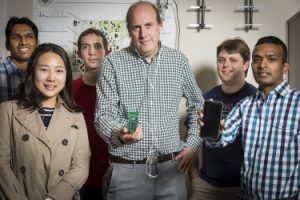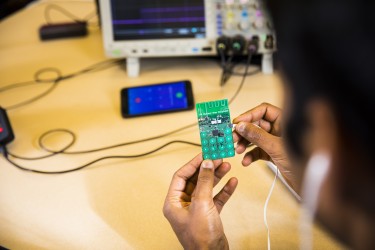Smartphones, laptops, wearables and more are increasing in power and functionality but remaining stagnant when it comes to battery life. In fact, in the ever growing world of connected devices, the need for long lasting batteries should be seen as being as important as the need for increasingly improved tech.
Massive tech companies, and even car companies (we’re looking at you Tesla), are working on a range of futuristic battery technology ranging from lithium air breathing batteries to solid state batteries and even flexible batteries. While these are all amazing, imagine if your smartphone didn’t need a battery at all.

Researchers at The University of Washington have revealed that they have created a battery-free cellphone.
“We’ve built what we believe is the first functioning cellphone that consumes almost zero power,” said co-author Shyam Gollakota, an associate professor in the Paul G. Allen School of Computer Science & Engineering at the UW. “To achieve the really, really low power consumption that you need to run a phone by harvesting energy from the environment, we had to fundamentally rethink how these devices are designed.”
In order to make or receive calls and perform certain functions, the phone does require a few microwatts (3.5 microwatts) of power which it gathers from either ambient radio signals or light.
The prototype was shown to operate on power gathered from ambient radio signals transmitted by a base station up to 31 feet away or by using power harvested from ambient light with a tiny solar cell (the size of a grain of rice) and communicate with a base station 50 feet away.
Instead, the phone harvests the few microwatts of power it requires from either ambient radio signals or light.



